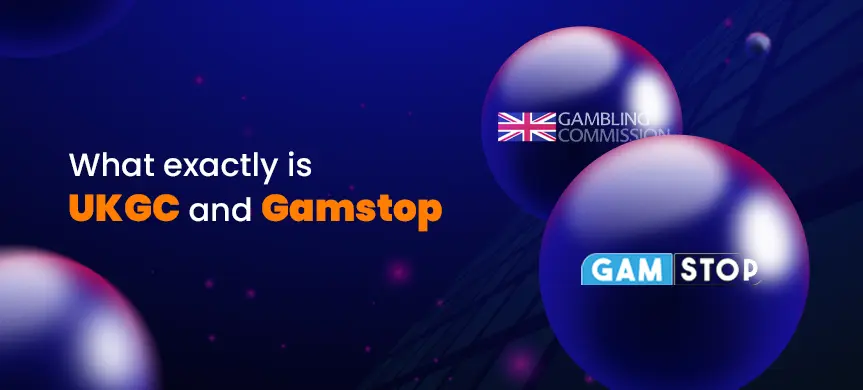
Safe Gambling – is it possible and if so, HOW?
Introduction Gambling has been part of human culture for centuries, from ancient dice games to…

The United Kingdom Gambling Commission (UKGC) is a cornerstone of the UK’s gambling industry, ensuring that gambling remains fair, safe, and crime-free. As the regulatory body responsible for overseeing both online and land-based gambling establishments, the UKGC plays a critical role in protecting players and maintaining the integrity of the gambling sector.
Established in 2007 under the Gambling Act 2005, the UKGC is a government-mandated organization that supervises a wide range of gambling activities, including casinos, sports betting, lotteries, bingo halls, and online gaming platforms. In this blog post, we’ll dive into everything you need to know about the UKGC, including its functions, rules, and significance in the gambling world.
What Does the UKGC Do?
The UK Gambling Commission was created to regulate gambling activities across the United Kingdom. Its primary objectives are to:
The UKGC achieves these goals by issuing licenses to gambling operators, enforcing stringent regulations, and conducting regular compliance checks. Any operator wishing to offer gambling services in the UK must obtain a license from the UKGC and adhere to its strict standards. Failure to comply with these rules can result in penalties, including license suspension or revocation.
How Does the UKGC Operate?
The UKGC operates through a robust licensing and monitoring framework. To obtain a UKGC license, gambling operators must meet several criteria, including:
Adopting tools for responsible gambling, such as self-exclusion programs.
The UKGC also conducts regular audits of licensed operators to ensure compliance with its regulations. It monitors gambling advertisements, payment systems, and customer support services, ensuring operators meet the highest standards of integrity and security.
Moreover, the UKGC collaborates with other organizations, such as the Financial Conduct Authority (FCA) and the Information Commissioner’s Office (ICO), to enhance player protection.
What Makes the UKGC’s Rules So Strict?
The UKGC is often regarded as one of the most rigorous gambling regulators globally. Its strict licensing requirements and regulatory framework are designed to create a safe environment for players while minimizing risks associated with gambling addiction and fraud.
One of the UKGC’s key focuses is responsible gambling. All UKGC-licensed operators must implement tools to help players manage their gambling behavior. These include:
Additionally, the UKGC has banned features like auto-play and credit card payments, which can contribute to irresponsible gambling behavior.
What Is GamStop and How Does It Work?
GamStop is one of the UKGC’s most notable initiatives for promoting responsible gambling. It is a self-exclusion program that enables players to voluntarily block themselves from accessing UKGC-licensed gambling platforms for a predetermined period.
Players can choose exclusion periods of six months, one year, or five years. Once enrolled, they cannot gamble at any UKGC-licensed operator until the self-exclusion period expires. GamStop applies to all forms of online gambling, including casinos, sports betting, and lotteries.
However, GamStop only covers UKGC-regulated platforms. Players who wish to bypass these restrictions may turn to offshore casinos licensed by jurisdictions like Curacao or Malta, which are not part of the GamStop program.
The Importance of the UKGC
The UKGC is essential for maintaining a safe and transparent gambling ecosystem in the UK. By enforcing strict rules and promoting responsible gambling, the Commission ensures that players can enjoy gambling without unnecessary risks. Its role in safeguarding player funds, preventing criminal activities, and upholding industry integrity is critical for sustaining public trust in the gambling sector.
However, the UKGC’s stringent regulations can also create challenges for players and operators. Some players find restrictions, such as the GamStop program and the ban on credit card payments, inconvenient. Similarly, operators often face high compliance costs, which can limit competition within the market.
Alternatives to UKGC-Licensed Casinos
For players seeking greater flexibility, offshore casinos licensed by other authorities, such as the Malta Gaming Authority (MGA) or Curacao eGaming, offer an alternative. These platforms are not bound by UKGC regulations, allowing features like credit card payments, faster game spins, and exemptions from self-exclusion schemes like GamStop.
While offshore casinos can provide a more relaxed gambling environment, players should exercise caution. Unlike UKGC-licensed platforms, offshore casinos may not always offer the same level of player protection. It’s crucial to verify the legitimacy and reputation of any offshore operator before signing up.
Summary
The UKGC is a pivotal organization in the UK’s gambling landscape, ensuring fairness, transparency, and safety for players. Its focus on responsible gambling and strict regulatory framework makes it one of the most respected gambling authorities in the world.
From enforcing self-exclusion programs like GamStop to regulating advertising and payment methods, the UKGC works tirelessly to protect players and uphold the integrity of the gambling industry.
For players who find UKGC restrictions limiting, offshore casinos licensed by alternative jurisdictions can offer a more flexible gambling experience. However, these platforms may not provide the same level of security and accountability as UKGC-licensed operators.
Ultimately, the UKGC’s mission is to create a balanced gambling ecosystem that prioritizes player safety while fostering a fair and responsible gaming environment.